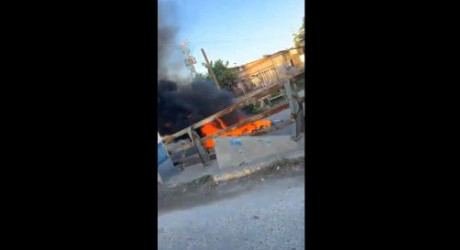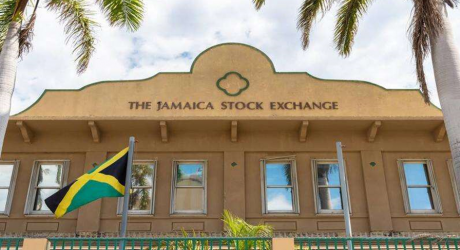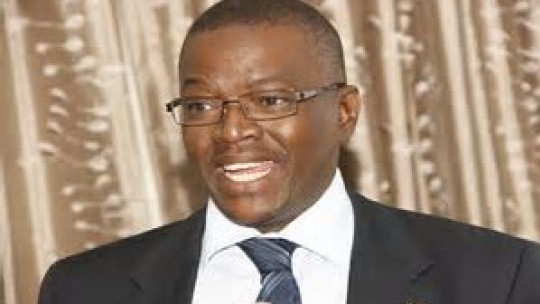Africa in Transition?
9:45 am, Tue April 10, 2018
By Bumpy Walker
“Tsamaya Sentle Ian Khama, Goroga Ka Pula Rre Masisi” [i] (Go well Ian Khama, Arrive with Rain Masisi.)
On April 1st, a new President was sworn-in in Botswana. It did not make the headlines internationally. Given that it was Easter, a day dedicated to a Northern European fertility goddess or the more popular celebration of the resurrection of Christian god does seem that the portents are favourable. If one were a cynic, one could instead focus on the fact that it was April Fool’s day. That this was in Africa, one should thus ignore these colonial cultural tropes and simply celebrate the event. The fact that it rained reinforced the idea that this was a fortuitous event.[ii]
Amusingly the outgoing President, Seretse Khama Ian Khama, had travelled his nation in what seemed like the farewell tour of a retiring rock star. To reinforce this analogy, the former President even went on stage to skank like Big Youth[iii]! To his discomfort he was showered with spontaneous gifts including cash, cows, cars and chickens. The BBC reported he wasn’t interested in farming; however my virtual Botswanan cousin tells me he is a champion farmer, winning prizes at the Botswanan equivalent of Denbigh.
Grandson of one of the three Twsana Kings
Ian Khama the outgoing president in the future will be an interesting historical figure; in Yankee parlance he is ethnically ambiguous. He is the eldest son of a traditional leader, Seretse Khama, who was his country’s first post-colonial head of government and an English Lady. His parents had a film (A United Kingdom[iv]) made about their romance in which the British Colonial office attempted to stymie their supposedly fairy tale like union. More importantly, he is the great grandson of one of the Three Twsana Kings, Khama III: The three traditional leaders who visited Great Britain at the end of the 19th century and managed to stop their nation being enveloped into a fiefdom of the arch imperialist scholarship creator Cecil Rhode by lobbying the British Government; a pyrrhic victory as their domains became the crown protectorate of Bechuanaland. [v]
Thus, in Botswana, the name Khama carries considerable gravitas, much in the manner that the name Manley does in Jamaica. While in part as a result of his ancestry, it is equally for his political stances: He was one of the earliest world leaders to call for Robert Mugabe to step down. Last year he faced down the Chinese who threatened to stop investment when he planned to meet the Dalai Lama[vi] . An African leader telling the ambassador of the world second most powerful nation “We are not your colony” is cause to celebrate. Given that his nation’s economy is growing and has relatively low levels of corruption will add to his legend in history.
His time in office was not unmarred by controversy.[vii] There was financial irregularity reported and undue pressure was put on the media to stop critical reports. A more amusing political scandal was the outcry over the Botswanan 50th independence logo. It bore uncanny similarities to the Jamaican fiftieth anniversary logo! [viii] Well our hummingbird logo was simply elegant!
Winds of Change
Mr Khama previously had a career in the military, rising to the rank of Army Chief of Staff before morphing into his political role. This transition is not unusual in Africa, as soldiers often evolve into political leaders. Thankfully he followed the example of Nigerian General/President Obasanjo and readily stepped away from the active privilege of national leaderships as required by the Botswanan constitution. Contrast this to the traditions of the world’s oldest political entity, Egypt, where in recent decades its leadership seems to have devolved back to a style of Pharaonic presidency with ex-military officers Nasser, Sadat, Mubarak all clinging to power for decades, till death or peoples power ejected then from office.
The change in leadership in Botswana is part of a wider political change sweeping through Africa in the last few months. Liberia recently had its fragile democracy reinforced when President Ellen John Sirleaf stepped down to be replaced by George Weah, the former international footballer and husband of a Jamaican. This process seemed shaky, uncertain when compared to the quiet confidence with which Botswana has changed its leader. But it has set a positive example for the future.
In Ethiopia, Prime Minister Hailemariam Desalegn resigned in the face of growing political and social unrest. This lead to a month long round of secret political trading by the coalition political parties who hold power. The surprising result was the selection of Abiy Ahmed Ali, the first ethnic Oromo, as his nation’s Head of Government. Ali is another former military man to make the quantum leap to national political leadership. He, like Vladimir Putin, is an intelligence operative!
On the same day the Ethiopian Prime Minister mysteriously resigned, Botswana’s neighbour South Africa saw President Jacob Zuma step down following a much publicised intra political party coup. The aura of corruption that led to this transition makes a sad ending to the career of a man who prevented a civil war between political rivals the ANC and the Inkatha Freedom Party in Kwa Zulu – Natal during the transition from apartheid.
In Zimbabwe, the old Father of the Nation Mugabe was ejected from power by a combination of a “non military”, military coup and a peoples power movement, while in Botswana’s “nearly” neighbour Angola the former MPLA President Eduardo Dos Santos stepped down after thirty years in power only to witness one of his children being charged with fraud. [ix]
In the Congo (DRC), Joseph Kabila who ascended to power following the death of his father refuses to schedule elections as this would constitutionally exclude him from retaining power.
The New President
Mr Khama, like Jamaica’s former Fresh Prince and Prime Minister, PJ Patterson, is a bachelor. This means the fashionistas of Botswana are anticipating the opportunity at critiquing with envy the couture of the new First Lady, a joy that has been denied them for the last decade.
Mokgweetsi Keabetswe Masisi, the new President, like his predecessor, is a legacy politician; his father was an adviser to the first President, Sir Seretse Khama, and his brother is a Member of Parliament. These family connections prevents this transition from being seen as a radical departure, rather it is viewed as a business as usual. Thankfully he is not another military man. He, like Robert Mugabe of Zimbabwe and our own former PM PJ, was a school teacher. He does however have the unusual distinction of having been an actor!
He inherits the leadership of a nation with a growing economy, relatively low levels of corruption, enviable levels of social cohesiveness and great athletes. Botswana has the added bonus of having a deep appreciation for Jamaican music and art!
Challenges
Don’t get the wrong idea; there are issues in Botswana. High youth unemployment and uneven wealth distribution are common challenges that most nations face. HIV/ Aids may have fallen from the news cycle but any nation like Botswana with its high rate of infection has a heavy burden to carry. The existential conflict of development versus the environment is ever present. Water is a perennial problem for one of the driest, hottest countries in the world, and given the changes in weather patterns coupled with the global increase in temperature, this will present Botswana with future challenges.
Since Independence, only one political party, the Botswana Democratic Party (BDP), has held power. Its share of the popular vote has fallen from eighty-plus percent to forty-six percent, suggesting a change is inevitable. While the change of political leadership through the internal mechanisms of the BDP has for the most part been smooth, the possibility of a future change of the party in power will be interesting.
Botswana seems to have elegantly managed to avoid the curse of the resource rich nation in the main but it needs to diversify its economy away from being a primary producer of diamonds. This is particularly pressing as there is the danger of this resource being depleted in the next few decades. That rain fell on inauguration day will make the grass grow, the cattle will fatten and more beef will be exported! (I bought Botswanan steak in Norway)
It is good and pleasant indeed, to know that Botswana has gone through another smooth change of political leadership. Mr Masisi is his nation’s fifth post-Independence leader. So it is worthwhile to take a moment to acknowledge this transition and celebrate.
You arrived with rain Mr President. Walk good!
[i] Traditional Motswana greetings.. Thanks Samchabs
[ii] http://www.africanews.com/2018/04/01/photos-colour-and-style-botswana-braves-rains-to-swear-in-president-masisi//
[iv] http://www.imdb.com/title/tt3387266/?ref_=nm_knf_i4
[v] https://mg.co.za/article/1998-10-23-we-three-tswana-kings
[vi] https://qz.com/1057123/dalai-lama-cancels-botswana-visit-but-ian-khama-stands-up-to-china/
[vii] https://mg.co.za/article/2015-05-21-africas-model-democracy-is-sliding-into-a-monocracy-that-is-punishing-the-media
[viii] http://www.sundaystandard.info/alleged-stolen-logo-threatens-spoil-botswana-50th-birthday-party
[ix] https://www.ft.com/content/49d5dcda-30fa-11e8-ac48-10c6fdc22f03

9:32 am, Sat April 20, 2024
.jpg)
5:08 pm, Wed April 17, 2024

7:07 pm, Wed April 17, 2024








 All feeds
All feeds







